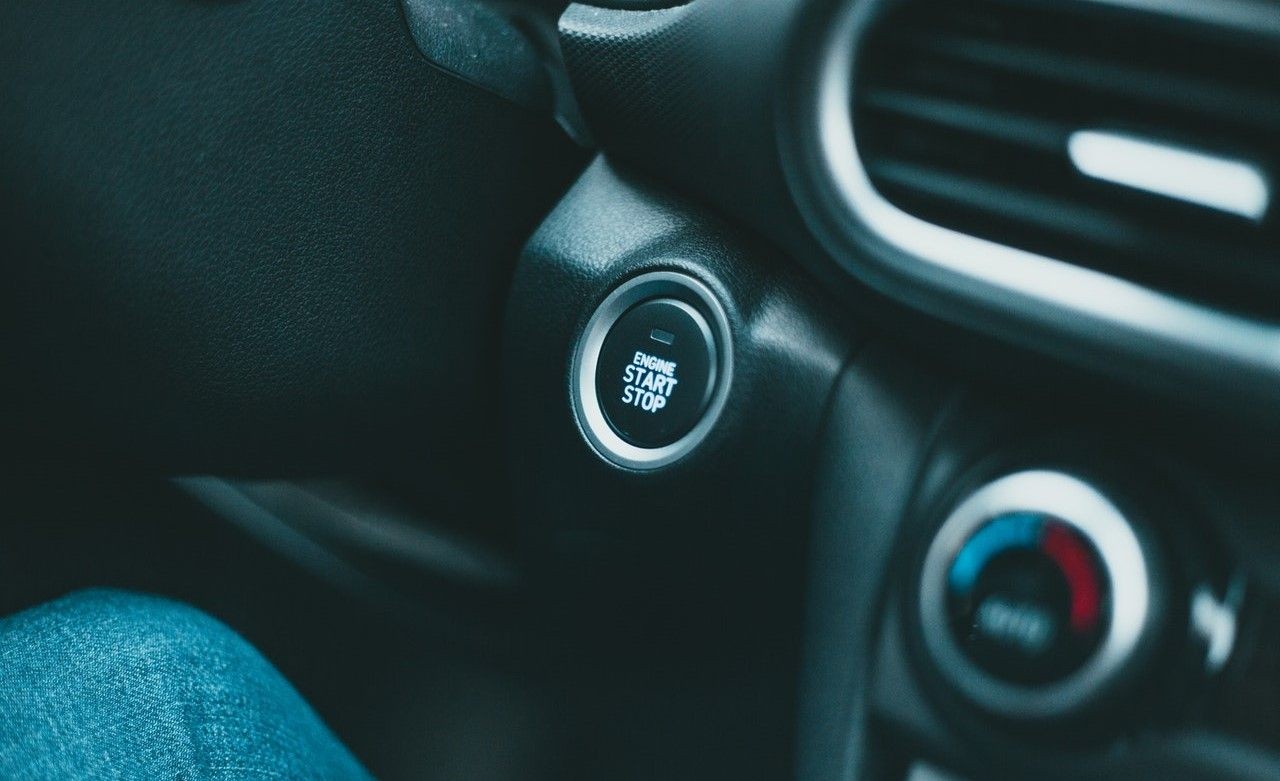Most modern vehicles, especially those manufactured in the last two decades, come equipped with a car immobilizer system as a standard security feature. This technology plays a crucial role in significantly reducing the risk of vehicle theft when functioning correctly.
But What Is An Immobilizer System exactly, and how does it safeguard your car? Furthermore, how can you determine if your vehicle is fitted with this anti-theft technology?
Decoding the Car Immobilizer System
A car immobilizer system, often referred to as an engine immobilizer, is an electronic anti-theft system designed to prevent unauthorized vehicle use. Its primary function is to stop a car from being started or hot-wired by someone who does not possess the correct key. According to statistics from the UK Government, the implementation of immobilizers as standard features in vehicles from 1992 onwards has led to a notable decrease in vehicle theft.
If you have purchased a car in recent years, it’s highly likely you are already benefiting from this technology, possibly without even realizing it. Car manufacturers increasingly provide key fobs or smart keys instead of traditional mechanical keys. These modern keys often include buttons for locking and unlocking doors, opening the trunk, and sometimes even remotely starting the vehicle.
Many contemporary vehicles also boast keyless entry systems, allowing you to access your car without physically pressing any buttons on the key fob. Furthermore, features like keyless go enable you to start your car while the key remains in your pocket or bag, adding another layer of convenience and security.
How Does a Car Immobilizer System Function?
Beyond simply unlocking and starting your car, modern car keys incorporate an advanced security component. Key fobs and smart keys contain a transponder chip inside. When you attempt to start your car, or even when the key fob is inside the vehicle, these chips transmit a unique security code to the car’s immobilizer system. If the passcode transmitted from the key fob precisely matches the code stored within the immobilizer system, the engine is authorized to start. Conversely, if the codes do not match, the engine remains immobilized, preventing the car from starting.
In most immobilizer systems, if an unauthorized attempt is made to start the vehicle using a counterfeit key with an incorrect code, an alarm will be triggered. Moreover, some advanced digital vehicle security systems are designed to automatically notify a security service in case of a suspected theft attempt. The security company or a connected mobile app will then contact the vehicle owner to verify their status and alert them of a potential theft situation.
Certain manufacturers have enhanced their immobilizer systems to incorporate a more sophisticated two-tiered security protocol utilizing both fixed and rolling codes. In these advanced systems, a secondary, constantly changing code is embedded in the transponder chip and updates each time the car is started. Upon ignition, the immobilizer first verifies the permanent code and then requests the dynamic secondary code. This rolling code is compared against a synchronized code stored in the vehicle’s database. Only upon successful verification of both codes will the car start.
Once the engine is running, the immobilizer generates a new secondary code and transmits it to the transponder, initiating a continuous cycle of code updates. This dynamic security system ensures that even if a code is intercepted, it becomes quickly outdated, significantly bolstering the vehicle’s anti-theft protection. The absence of the correct, dynamically changing code will effectively prevent the car from starting.
Determining if Your Car Has an Immobilizer
There are several indicators that can help you ascertain whether your car is equipped with an immobilizer system. The most reliable source of information is your car’s owner’s manual. This document should contain comprehensive details about your vehicle’s features, including whether it was factory-fitted with an immobilizer.
Other clues include the age and type of your car key. If your car is a post-1998 model, it is highly probable that it incorporates an immobilizer system. Furthermore, if your car uses a key fob or a smart key, it almost certainly has an immobilizer. These assumptions are valid if you purchased the car new, ensuring that the original security features have not been altered.
However, if you bought your car used, it’s important to be aware that a previous owner might have potentially disabled or removed the factory-installed immobilizer system. Conversely, even if your car did not originally come with an immobilizer, a previous owner might have installed an aftermarket system.
Your car’s handbook remains the most definitive resource for information regarding the immobilizer, including details about any modifications or removals. If this information is not readily available, a qualified mechanic should be able to inspect your vehicle and confirm the presence and functionality of an immobilizer system.
The Safety and Efficacy of Car Immobilizers
Since their widespread introduction, immobilizers have demonstrably contributed to a significant reduction in car theft rates. According to reports from Kaspersky, car theft in the United States experienced a substantial decline in the late 1990s and continued to decrease further in the 2000s, coinciding with the increasing adoption of immobilizer technology as standard vehicle equipment.
While car immobilizers are highly effective in deterring opportunistic car theft, it’s important to acknowledge that determined criminals are constantly evolving their methods. Unfortunately, thieves have, over time, developed techniques to bypass even sophisticated security measures, including immobilizer systems.
The advent of keyless entry and start systems in modern vehicles has inadvertently led to a rise in relay theft. This technique involves criminals using electronic devices to intercept and amplify the signal emitted by the car’s key fob. By relaying this signal, they can trick the car’s electronic system into believing the key is present, allowing them to unlock, start, and drive away the vehicle without ever physically deactivating the immobilizer. Relay theft represents a significant method by which technology is exploited to steal cars. However, automotive manufacturers are continuously developing and implementing countermeasures in newer models to mitigate the risks of relay theft.
Understanding Thatcham Ratings for Immobilizers
Thatcham Research is a UK-based, independent organization that specializes in vehicle security assessment. Thatcham ratings are widely recognized by insurance companies to evaluate a vehicle’s security features, including alarms and immobilizers, which directly impacts insurance premiums. It is important to note that Thatcham assigns different performance ratings to various alarms and immobilizer systems, reflecting their varying levels of effectiveness.
You can check your car’s Thatcham rating on the official Thatcham website. To do so, you will typically need to provide details about your vehicle, such as its make, model, fuel type, and year of manufacture. The website will then provide safety-related ratings, including theft risk, whiplash protection, and overall group ratings specific to your vehicle. These ratings offer valuable insights into your car’s security level and assist insurance providers in determining appropriate insurance rates.
Equipping your car with an immobilizer significantly enhances its security and makes it a less attractive target for theft. This reduced risk translates to lower premiums from vehicle insurance companies. A factory-fitted, Thatcham-approved immobilizer generally represents the highest standard of security and is often preferred by insurers. Always carefully review your specific auto insurance policy, as coverage and requirements may vary between providers.
Enhance Your Vehicle Security with an Immobilizer System
Car immobilizers are a vital component of modern vehicle security, effectively deterring theft by requiring a unique passcode exchange between the key fob’s transponder chip and the car’s engine control unit. When the codes match, the car starts; otherwise, it remains immobilized. Immobilizers also often incorporate alarm systems that activate if unauthorized attempts are made to start the vehicle.
Despite the effectiveness of immobilizers, resourceful criminals continue to adapt, finding ways to bypass transponder codes, particularly with the advent of keyless entry and start systems. While manufacturers implement increasingly sophisticated security systems, proactive vigilance remains crucial for car owners to minimize the risk of theft. Practicing good security habits, such as parking in well-lit and secure areas, keeping your car keys safe and away from relay theft devices, and remaining aware of your surroundings when near your vehicle, are all essential steps in protecting your car from theft.

